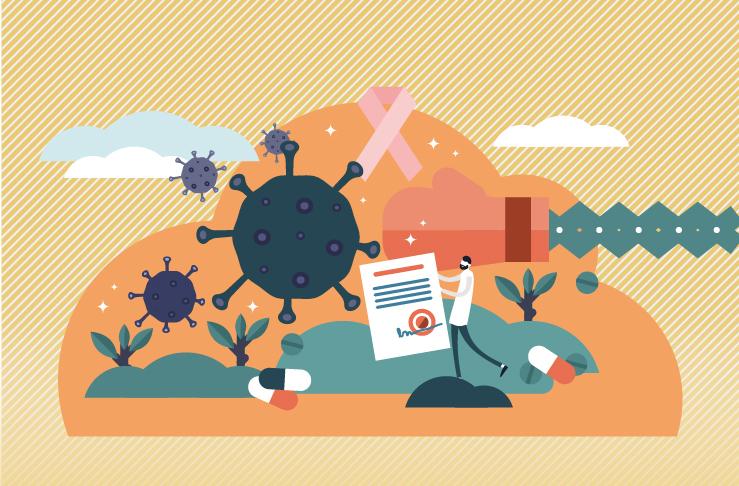
The JRC adds a new knowledge base of 542 models used in the immuno-oncology field to its freely available collection of advanced non-animal models for biomedical research.
In 2020 approximately 2.7 million new cancer cases were diagnosed in the EU-27, representing an enormous burden on individuals, healthcare systems and society in general.
Cancer occurrence is often associated with lack of an efficient immune system. A deeper understanding of the interaction between our immune system and cancer has therefore led to the development of novel therapies that can restore and enhance the capacity of the immune system to target tumour cells.
Nevertheless, the inability of typical animal models used in preclinical research to mimick key aspects of human physiology and disease, and to accurately predict patient responses to immuno-therapies, has limited the development of new and more effective treatment strategies.
There is an ongoing need therefore to develop and apply more functional and human relevant non-animal models to gain new knowledge, develop new therapies and ultimately offer new hope to cancer sufferers.
A knowledge base of non-animal models for immuno-oncology
In order to explore the trends of human-based in vitro and in silico models being used fruitfully in immuno-oncology research, the JRC's EU Reference Laboratory for alternatives to animal testing (EURL ECVAM) organised a study based on a systematic literature review of publications on immuno-oncology describing promising advanced non-animal models.
Around 130,000 peer-reviewed papers published from January 2014 to March 2019 were initially retrieved and screened, from which 542 scientific peer-reviewed articles where selected for a deeper analysis of the non-animal models used.
The resulting knowledge base is in an easy-to-use spreadsheet format and is freely available to download from the EURL ECVAM Collection in the JRC Data Catalogue.
“The research community working in this field has been focused a lot on the development and refinement of therapeutic strategies” comments JRC scientist Laura Gribaldo. “However, from about 2018 onwards the aim of most studies shifted to the investigation of more fundamental aspects of our immune system and disease pathways. This reorientation has led to better use of mechanistic insight to improve and develop innovative immuno-therapies.”
To complement the knowledge base, the JRC also publishes a technical report analysing the models identified to describe the state-of-the-art from different perspectives, including the most prevalent model types, typical contexts of use, and emerging trends. An executive summary of the whole study is also provided.
A unique knowledge base that can serve multiple stakeholders
Researchers are the first target of this study: they can identify models and methods that can be adapted and applied to tackle their own research questions, but also educators can provide the latest information on the state-of-the-art to their students.
Further, funding bodies can consider trends, identify impactful research avenues and target promising areas for investment. Competent authorities can ensure proper knowledge sharing on non-animal methods within Member State networks and organisations involved in biomedical research using animals.
The JRC's EURL ECVAM has undertaken a series of such studies in several other areas including neurodegenerative diseases, respiratory diseases and breast cancer, with others on their way (autoimmunity, cardiovascular disease, and immunogenicity of advanced medicinal products). The JRC selected these areas based on consideration of disease incidence and prevalence, the reliance of related research on animal models, and the amount of animal procedures conducted.
Read more
Related Content
Details
- Publication date
- 20 September 2021
